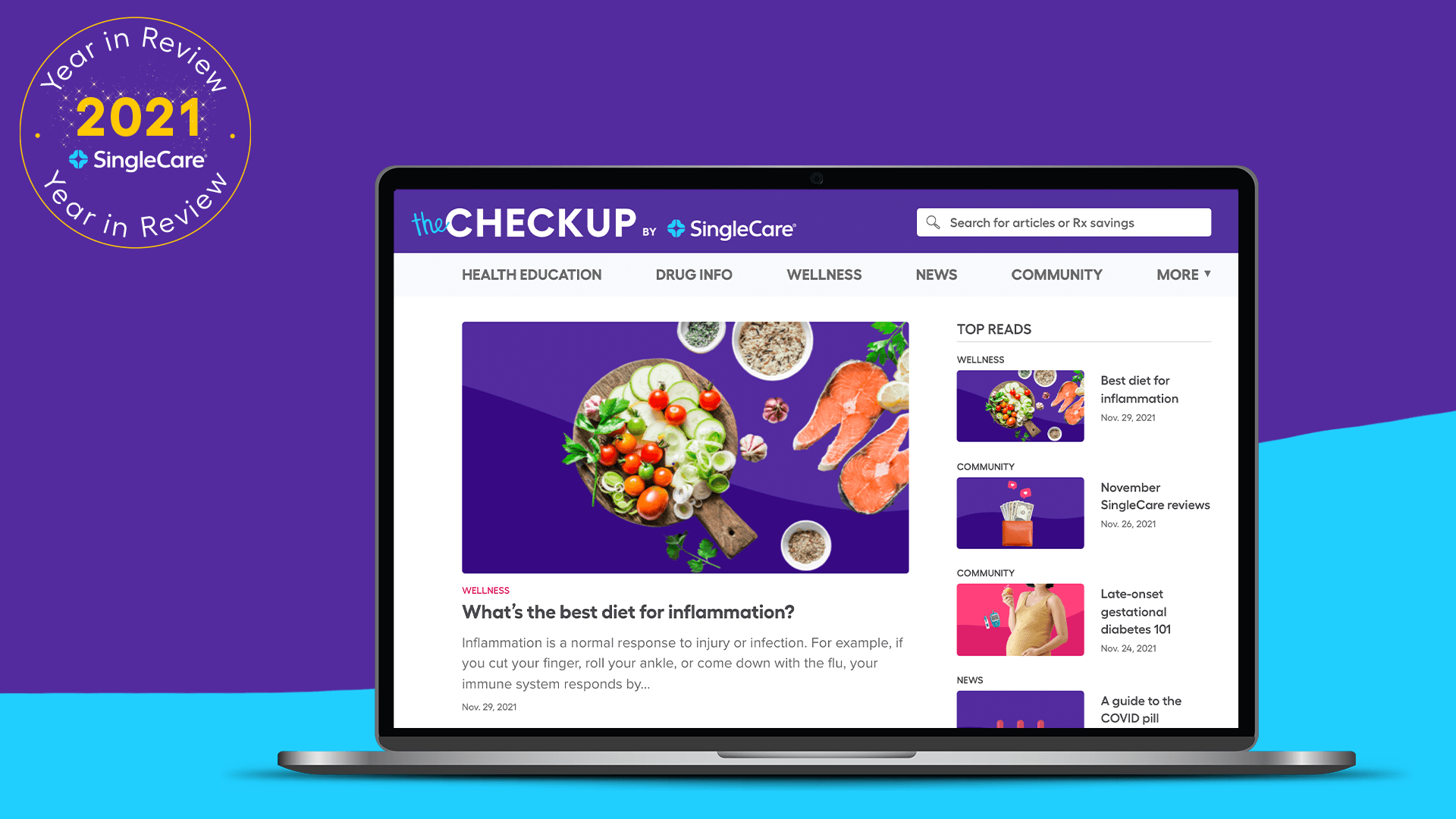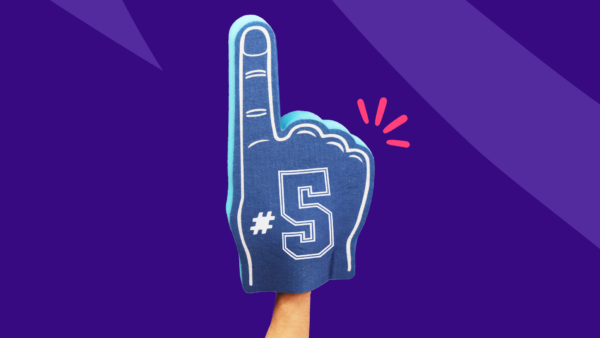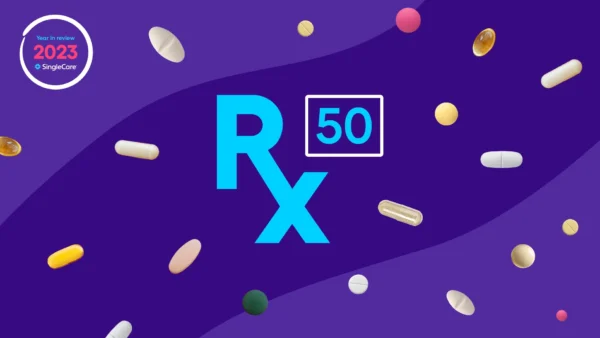As 2021 began, the world was filled with hope—that the new year would bring new advances in fighting against the COVID-19 pandemic. While early winter was filled with uncertainty, by March the tide was beginning to turn. Vaccines became available and the first protection against the coronavirus rolled out. In the spring and summertime, the people across the U.S. tentatively—and joyously—began to open their doors and start socializing again. As fall turns to winter, booster shots and vaccines for children are becoming available. The pandemic continues on, but new treatments, like molnupiravir and Paxlovid are in the works.
Through the constant changes, The Checkup is here to share the health and wellness information you need to feel better—even amid uncertainty. We’ve covered a lot of topics since January. Perhaps unsurprisingly, many of the most-read articles of the year involve COVID-19, and the anxiety that an unpredictable virus can bring. Along with that, perennially popular topics include weight loss, allergies, diet, and contraception made the top 10 list.
In case you missed it, these are the most popular SingleCare blog posts of the year.
1. What to expect the first week of taking Zoloft
One of the trickiest parts of starting a new antidepressant is getting the dosage right. Most of these types of medications take two to six weeks to reach full effect—including Zoloft. Yet, when you first begin taking this Rx, you may notice a few side effects within the first seven days. Learn what to expect, and when to see a doctor about switching things up.
2. Is Zoloft good for anxiety?
If you’ve been more anxious since the pandemic began, you’re not alone! A SingleCare survey found that 62% of respondents are experiencing some type of anxiety. Fortunately, there are many medications that can help you find relief. Zoloft is approved to treat many mental health conditions—including social anxiety disorder. Along with cognitive behavioral therapy, it can make a difference for many people. Here’s what you need to know.
3. Topamax for weight loss
When you think about dropping a few pounds, this migraine and epilepsy treatment might not be the first thing that comes to mind. Yet, weight loss is a well-known side effect of Topamax (topiramate). This prescription isn’t FDA approved for that purpose; it’s an off-label use. And it’s not for everyone, but we break down what you should know when speaking with your healthcare provider about this med as an option.
4. The fatty liver diet: 8 foods to eat—and 8 to avoid
Fatty liver disease, as its name suggests, is a medical condition caused by a buildup of fat in the liver. There are two main types: alcohol-induced (caused by excess alcohol consumption) and nonalcoholic (occurs even if you’ve never had a drink). About 5% of the United States population have alcoholic fatty liver disease. And approximately 100 million people in the U.S. have nonalcoholic fatty liver disease (NAFLD). Changing your diet is essential to manage symptoms. Make sure to incorporate these items.
5. What’s important to know about treating dogs with anxiety
Even our canine friends are not immune to the stress of a pandemic. Changes in routine—like the whole family working from home, or returning to the office—can stress out a regularly placid pup. If your dog is exhibiting any of these signs of anxiety, it may be time to talk to your veterinarian about the options available to help Fido calm down.
6. These 9 medications interfere with birth control
Don’t mix with alcohol. Avoid grapefruit. Skip the St. John’s wort. There’s a lot of info flying around about drug interactions. When you take several prescriptions or supplements, it’s always a good idea to talk to your pharmacist about potential medication interactions—especially if one of your daily pills is for contraception. These types of pills can render birth control ineffective.
7. Is it safe to take an antihistamine every day?
Springtime flowers have you sniffling and sneezing. Then grass really starts growing during the summer. As fall and winter roll around, dust mites and indoor allergens make your eyes water and your head ache. If antihistamines are part of your allergy treatment plan, you may be wondering if it’s okay to take them year round.
8. Is it normal to get a headache after the COVID vaccine?
Pain at the injection site, tiredness, even a fever are all expected side effects of the COVID-19 immunization. While annoying, they are much less bothersome than fighting off the coronavirus without vaccination. If you’re heading in for your first shot—or a booster shot—and want to make a game plan to head off side effects before they start, learn how often headache occurs—and how to fight it.
9. The impact of COVID on your thyroid
Whether it’s changing the way your senses work or heart trouble, the novel coronavirus can affect nearly every system in your body—including the endocrine system. After COVID-19 infection, a small percentage of people experience malfunctions in their thyroid, a small, butterfly shaped gland that helps regulate your metabolism, body temperature, and more. Here’s what you need to know about potential thyroid problems post-COVID.
10. How to regain taste and smell after coronavirus
Fever, body aches, and dry cough were the first hallmark symptoms of COVID-19. Fairly early on, two other neurological symptoms emerged: loss of taste and smell. For many COVID survivors, what at first seemed short term transformed into a long haul experience. Months, and even years, after infection, many struggle to regain full scent and taste capacity. These strategies can help get it back.











